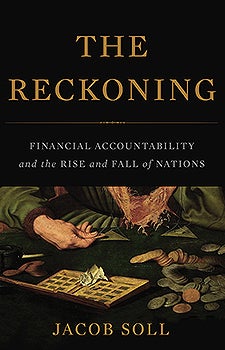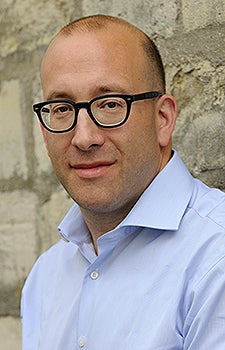A Case for Balancing Your Checkbook
As the United States was spiraling into one of its worst financial collapses in history, Jacob Soll found an interesting parallel in France’s “Sun King.”
The USC professor learned that Louis XIV, better known for his wigs, mistresses and the Palace of Versailles, had also taken a keen interest in accounting and carried golden notebooks in his pockets that detailed the royal budget.
But soon, the monarch destroyed his books, which had come to remind him of the rising debt accrued through costly wars and his spending on Versailles. By the time the king was on his deathbed, France was bankrupt.
“That blows me away because here you have remarkable innovation and then willful destruction of the innovation as soon as accountability comes around. That’s one of the lessons for today,” said Soll, professor of history and accounting, who holds appointments at USC Dornsife and the USC Leventhal School of Accounting. Winner of a 2011 MacArthur “Genius” grant, Soll has led the way in combining the study of history with accounting.

Jacob Soll’s The Reckoning: Financial Accountability and the Rise and Fall of Nations will be published by Basic Books this month.
When Soll witnessed the collapse of Lehman Brothers and other U.S. investment bank giants in 2008, he turned his focus to this pattern that has persisted since ancient times: Capitalism and government flourished during times of financial accountability, only to fall when leaders abandoned those practices. His book, The Reckoning: Financial Accountability and the Rise and Fall of Nations (Basic Books), will be published this month.
“This is a cultural tradition that we play out over and over again,” Soll said. “In 2008, when the financial crash happened, I was sort of startled to see that none of the things that I had seen in the past — when people were building stable states and inventing modern capitalism — none of that was going on in our own political and economic culture.”
Consider these examples:
- The Emperor Augustus, who some consider the greatest ruler of all time, measured his success by accounting and transparency. “Augustus the imperial accountant is not a story anyone tells,” Soll writes. But Augustus kept account books in his own handwriting and etched the statistics onto walls of public buildings across his empire. Despite Augustus’ success, however, it would take the fall of Rome and more than a millennium before leaders returned to his bookkeeping practices.
- The Italian Renaissance flourished on the “mundane foundation” of good bookkeeping. In Tuscany, even workers and artisans were expected to keep good records of their finances, Soll wrote, and accounting was an integral part of school curriculums.
- The release of King Louis XVI’s royal budgets during a political debate started a chain reaction that incited the French Revolution. “It’s paradoxical because here is France on the eve of the Revolution when this ancient system is about to completely collapse, and they’re having a remarkably sophisticated and innovative discussion about finance,” Soll said. “But we, with our modern capitalist system — which I would call ‘hyper financial’ — are not having any of these discussions.”

Professor of History and Accounting Jacob Soll’s upcoming book The Reckoning: Financial Accountability and the Rise and Fall of Nations addresses financial accountability as a key element in the rise of nations. Photo by Geraldine Bruneel, Paris.
In modern times, the rise of the credit card and computerized banking have made it even easier for people to avoid a reckoning of their own personal finances, Soll said. He hopes his book, and the 700 years of history it brings to bear on today’s financial woes, will help bring debates about accountability back into the public sphere.
“People want financial accountability: They want it from banks, they want it from the government, they want it from individuals,” he said. “We need discussions at all levels of society. It has to become a cultural mode.”